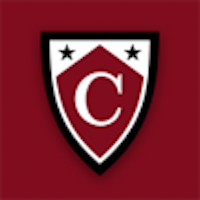I hear from a lot of frustrated teachers who are passionate about K-12 education, but are looking for a bigger way to make a difference and benefit more students while still keeping their fingers on the pulse of the classroom.
They don't want to abandon education altogether, but they really need a break from the daily grind. These teachers look at me and my job as an educational consultant and wonder, "How can I get a gig like that?" Some may think they're not qualified or that it's a hard field to break into.
But I'm here to tell teachers everywhere that it can indeed be done. Here are six tangible steps you can take to make it happen.
First, what is an educational consultant?
Educational consultants do many things. They advise K-12 school districts on how to integrate technology into the classroom. They design and manage higher education and professional development programs for K-12 teachers at universities and colleges. And they help companies design products for teachers. (I’ve done all three.) They are found in K-12 schools, at higher education institutions, and at edtech firms.
Why become an educational consultant?
Becoming a consultant is a great way for teachers who want a break from the classroom to stay well-connected to the field while having a huge impact on student achievement.
It doesn't even have to be a permanent career move. You can use consulting as a way to refresh your career—a temporary step away from the classroom to recharge your energy for teaching.
How to transition from the classroom to consulting
One of the greatest things about becoming a consultant is that you can begin the transition while you’re still teaching. And if you decide not to follow through with a career shift, none of these efforts are a waste of time. (In fact, most of these steps will help you in the classroom.) Even if you’re just considering a change, it won't hurt to get started on these steps today.
1. Become an expert in the area about which you’re most passionate.
Whether your interests lie in student outcomes, emerging technology, blended learning, or any number of other specializations, the best way to position yourself as an expert in something is to learn as much as you can about it. Great ways to stay on top of current trends in your topic of choice include:
- Be active on social media. Twitter, Google+, Pinterest. Join at least one of these social media channels if you haven't already. You don't have to contribute right away. Start out by following other teachers and experts in your field of interest. Find relevant educational hashtags to follow so you can see posts from a broad network. Attend some chats and Google+ Hangouts to see what people are talking about. I found some of my most respected peers on Twitter. I watched hashtags and began to follow people whose philosophies I liked, and I noticed who they followed. Soon there was an ocean of experts which whom I could connect.
- Read relevant blogs and newsletters. EdSurge is a great place to start! Search for other blogs and newsletters that specialize in your subject of interest as well. Education Week and Teach100 are good sources for education blogs on a wide variety of topics.
- Take professional development tutorials online. From beginner to advanced, you'll find a wide variety of online courses to help take you to the next level of knowledge. Organizations like SOPHIA, Atomic Learning and Scholastic are good resources.
2. Seek out neighborhood, district and state opportunities.
Find and participate in opportunities you hear about through district and state requests. You’ll learn new things and also add to your network of names and your knowledge of leadership. Becoming actively involved in improving education at a broader level is much more rewarding than being a naysayer of all things administrative.
Specifically, consider joining building improvement committees, district task forces, curriculum revision and review committees, assessment discussions, and state standardized testing panels. You never know where these opportunities will take you, and oftentimes they also lead to extra pay. For example, while I was still a classroom teacher I learned that the Minnesota Department of Education was looking for teachers who wanted to be involved in building a science framework resource. This was a great way for me to help implement new science standards for all teachers in Minnesota.
3. Get involved in local and professional associations.
- Join. Search the internet for local associations and join the one that fits your interests best. Many national associations have local chapters, such as the National Science Teachers Association (NSTA), the National Council of Teachers of Mathematics (NCTM) and the National Council of Teachers of English (NCTE).
- Attend events. Start out with local events to meet other like-minded teachers in your area. Then look for local conferences to attend, where professionals share best practices and new ideas. I recommend starting small—larger conferences like SXSW and ISTE can be overwhelming.
- Volunteer. Most associations have opportunities to volunteer, which is a great way to learn about new events and opportunities ahead of the crowd.
- Become a board member. After participating in an organization for a while, you can eventually become a board member. Make sure you participate in the group and show yourself to be passionate about change. This is a great chance to hone your leadership skills and meet state-level leaders.
4. Stay on top of your professional development.
Keeping track of your renewal clock hours is not only a requirement; it's also an opportunity to challenge yourself. After figuring out the specific categories where you need time (like mental health, technology, reading and literacy, etc.), find quality professional development that you can immediately implement in your classroom.
In the summer, commit a portion of your time to attending workshops or taking professional development classes. I prefer online communities like SOPHIA that give me my own timeline and partner with an established online university to ensure great content. And never short change the fun and easy events hosted by local museums and other informal education centers.
5. Attend (and eventually present at) conferences.
- Find conferences relevant to your area of interest. Professional association newsletters are a great place to look for upcoming conferences. You can also do a Google search for keywords like “Ed Tech Conferences” and set up an email alert for these terms. (EdCamps are free and becoming one of the fastest growing “unconference” learning opportunities available.)
- Immerse yourself in the conference. Download a Twitter app for your phone and find out the hashtag for the conference so you can easily tweet and follow along while you’re there. Meet and socialize with fellow conference attendees. If you can, take a moment to introduce yourself to the organizers and let them know you are interested in speaking at a future event.
- Submit proposals to speak. Follow the websites or social media outlets of the event organizers so you’ll know when they call for proposals. Submit proposals even if you don’t think they’ll make the cut. You'll learn by experience what makes a good one. Eventually, one will be accepted and you'll get to speak!
6. Network, network, network!
- Keep track of the contacts you make at conferences and events. Add them as contacts on Google+, follow them on Twitter, and read their blogs.
- Use social media to share your peers’ work. And vice versa, ask your peers to share your work. This will help get your name out there. Don’t underestimate how much you have to offer; toot your own horn, you’ve earned it!
- Network up the ladder. Expand your network beyond other classroom teachers; include higher ed faculty, administrators, and company specialists. This can really jump start your transition into consulting! For example, I started as a College Board reader for Advanced Placement Chemistry. I met one of the Board’s senior consultants, who asked if I wanted to do a day-long workshop. I accepted and eventually worked my way into week-long workshops. Now I'm traveling around the Midwest, sharing my knowledge, and making a difference to new teachers in need of support and encouragement.
- Find a consulting mentor. There are a few online resources, such as New Teacher Center and College Board, which may connect you with educational consultants. Additionally, ask your network if they know people who have transitioned from the classroom to consulting. Arrange introductions to them and ask about how they made their transitions, what their challenges were, and how they overcame them.
If done with intention and integrity, all of these activities will serve as a solid foundation to position yourself as an expert in your field. Once you're ready, use your network as the jumping off point to get into consulting. Put it out there that you're looking for opportunities outside of the classroom, and you might be surprised by what comes your way.



